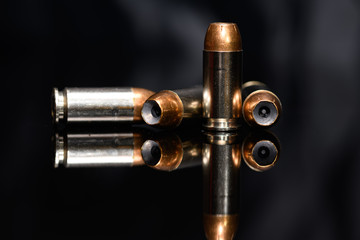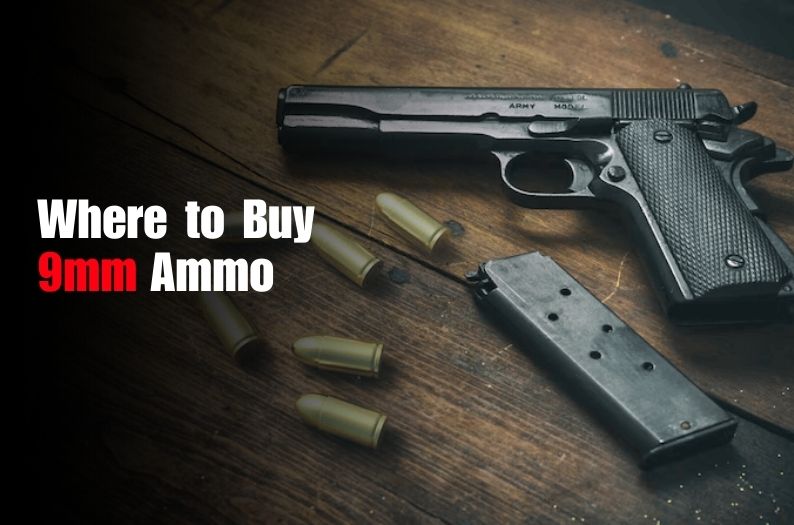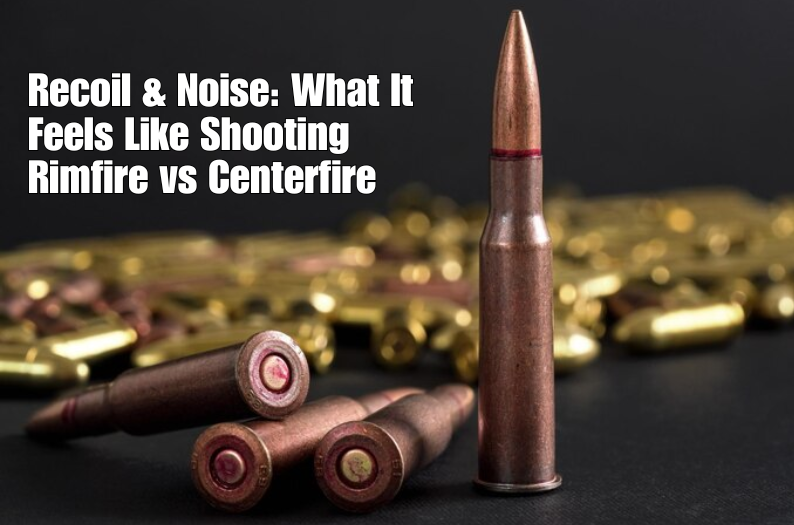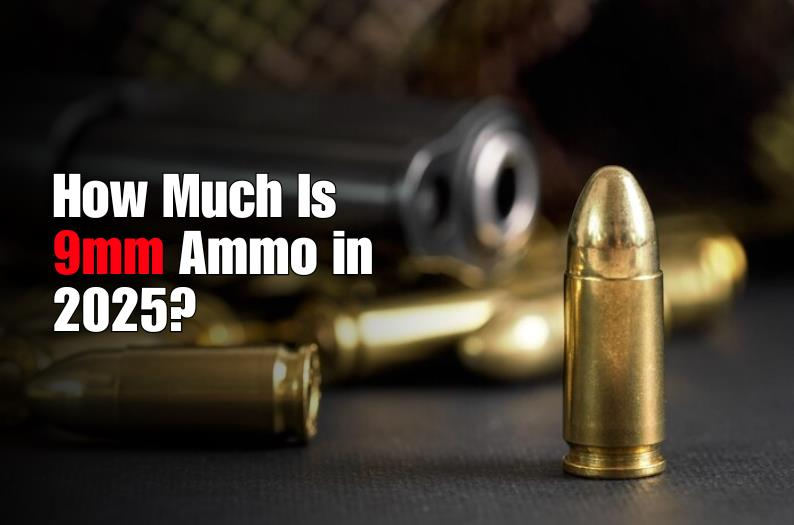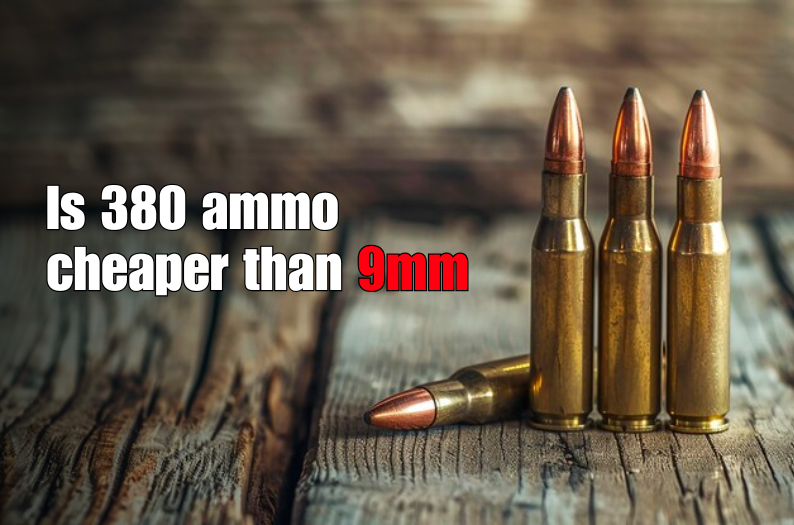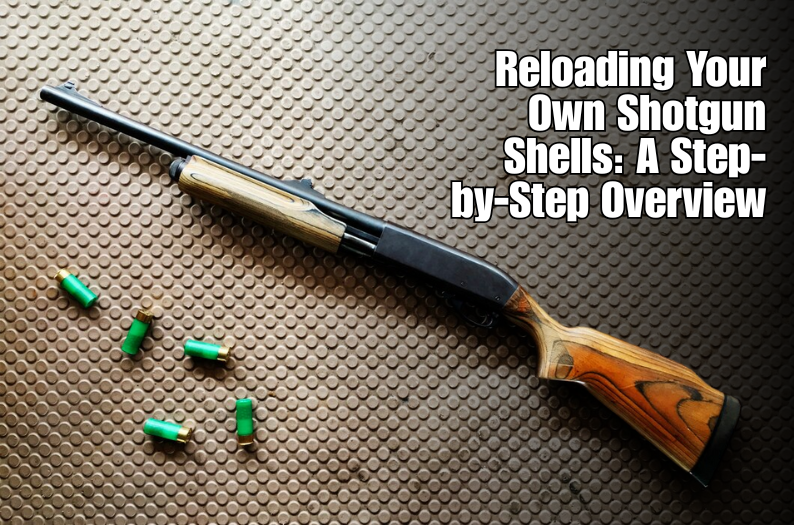When selecting ammunition, understanding the differences between Full Metal Jacket (FMJ) and Jacketed Hollow Point (JHP) bullets is essential. Both types of ammunition serve specific purposes and are suited to different scenarios, whether in training, target shooting, or self-defense. This guide will explore the attributes, advantages, and disadvantages of FMJ and JHP bullets, offering a detailed comparison that includes ballistic information and real-world applications. We’ll also highlight the importance of choosing the right ammunition for your needs and how hollow point bullets play a critical role in self-defense situations.
1. Overview of Bullet Types
Before diving into the specifics, it’s important to understand what FMJ and JHP bullets are and how they differ in design and intent.
a. Full Metal Jacket (FMJ)
- Design: FMJ bullets feature a soft lead core encased in a harder metal shell, typically made of copper. This full metal jacket prevents the bullet from expanding upon impact, allowing it to penetrate deeper into the target.
- Purpose: FMJ bullets are designed for penetration. They are commonly used in military applications, training, and target shooting where consistent feeding and reliable performance are crucial.
b. Jacketed Hollow Point (JHP)
- Design: JHP bullets have a hollowed-out center in the bullet’s tip, which causes the bullet to expand upon impact. This expansion creates a larger wound channel and maximizes energy transfer to the target.
- Purpose: JHP bullets are designed for controlled expansion, making them ideal for self-defense situations. The expansion reduces the risk of over-penetration, ensuring that the bullet stops within the target, minimizing collateral damage.
2. Ballistic Performance Comparison
Ballistic performance is a critical factor in choosing the right ammunition. Here’s how FMJ and JHP bullets compare in terms of velocity, penetration, and energy transfer.
a. Velocity and Accuracy
- FMJ Bullets: FMJ rounds generally have a higher velocity due to their streamlined shape and lack of expansion. This makes them more accurate over longer distances, which is why they are often used in target shooting and military operations.
- JHP Bullets: JHP bullets, while slightly slower due to their expansion design, offer excellent accuracy at typical self-defense ranges (0-25 yards). The hollow point design can cause slight drag, but the trade-off is improved terminal performance.
b. Penetration
- FMJ Bullets: FMJ rounds are known for their deep penetration. This can be both an advantage and a disadvantage. While deep penetration is beneficial in military and law enforcement scenarios where barriers need to be breached, it can be hazardous in civilian self-defense situations due to the risk of over-penetration and unintended injury.
- JHP Bullets: JHP bullets are designed to expand upon impact, which limits their penetration depth. This controlled penetration is ideal for self-defense, as it reduces the likelihood of the bullet passing through the target and causing harm to bystanders.
c. Energy Transfer
- FMJ Bullets: FMJ bullets transfer less energy to the target because they do not expand. This can result in less immediate stopping power, as the bullet may pass through the target with minimal disruption to vital organs.
- JHP Bullets: JHP bullets maximize energy transfer by expanding upon impact. The larger wound channel created by the expansion ensures that more energy is delivered to the target, increasing the likelihood of incapacitation.
3. Applications and Use Cases
The choice between FMJ and JHP bullets largely depends on the intended use. Understanding the strengths and weaknesses of each type of ammunition can help you make an informed decision.
a. Full Metal Jacket (FMJ) Applications
- Training and Target Shooting: FMJ bullets are the preferred choice for training and target shooting due to their affordability, reliability, and consistent performance. They are less expensive to manufacture than JHP bullets, making them more cost-effective for high-volume shooting.
- Military and Law Enforcement: In military and some law enforcement scenarios, FMJ bullets are used for their ability to penetrate barriers such as walls, vehicles, and light armor. Their deep penetration capabilities are essential in situations where stopping a threat behind cover is necessary.
b. Jacketed Hollow Point (JHP) Applications
- Self-Defense: JHP bullets are the gold standard for self-defense. Their ability to expand upon impact reduces the risk of over-penetration, making them safer for use in populated areas where bystander safety is a concern. The stopping power provided by JHP bullets makes them highly effective at incapacitating a threat quickly.
- Home Defense: In home defense situations, JHP bullets offer the best balance between stopping power and safety. Their controlled expansion ensures that the bullet stays within the target, reducing the risk of damaging property or injuring others in the home.
4. Legal and Ethical Considerations
The use of FMJ vs. JHP bullets also involves legal and ethical considerations, particularly in self-defense scenarios.
a. Legality of FMJ and JHP Bullets
- FMJ Bullets: FMJ bullets are generally legal for civilian use in most jurisdictions. However, some areas may have restrictions on using FMJ bullets for self-defense due to the increased risk of over-penetration.
- JHP Bullets: JHP bullets are legal for civilian use in most areas and are often recommended for self-defense by law enforcement agencies. Some jurisdictions, however, may have specific restrictions or regulations regarding their use, particularly in handguns.
b. Ethical Considerations
- FMJ Bullets: Using FMJ bullets in self-defense situations raises ethical concerns due to their potential to over-penetrate and harm innocent bystanders. In combat or law enforcement, the deep penetration of FMJ bullets may be necessary, but in civilian scenarios, the risks must be carefully considered.
- JHP Bullets: JHP bullets are designed to minimize collateral damage, making them a more ethically sound choice for self-defense. Their controlled expansion ensures that the energy is transferred to the target, reducing the likelihood of unintentional harm.
5. Choosing the Right Ammunition for Your Needs
When selecting between FMJ and JHP bullets, consider the following factors to ensure you choose the right ammunition for your specific needs.
a. Training and Practice
For regular training and practice, FMJ bullets are typically the best choice due to their lower cost and consistent performance. They allow for extensive shooting without the financial burden that comes with using more expensive JHP rounds.
b. Self-Defense and Home Defense
For self-defense and home defense, JHP bullets are the recommended option. Their expansion upon impact provides the stopping power needed to neutralize a threat while minimizing the risk of over-penetration and collateral damage.
c. Tactical and Military Use
In tactical or military settings, the choice between FMJ and JHP may depend on the mission requirements. FMJ bullets are often preferred for their ability to penetrate barriers, while JHP bullets may be chosen for specific missions where controlled penetration and maximum stopping power are required.
6. Integrating Hollow Point Bullets into Your Self-Defense Strategy
Hollow point bullets, particularly JHP rounds, should be a key component of any self-defense strategy. Their design and performance characteristics make them the ideal choice for situations where stopping a threat quickly and safely is the priority.
a. Why Hollow Points Are Essential
- Stopping Power: The expansion of hollow point bullets upon impact ensures that maximum energy is transferred to the target, increasing the likelihood of immediate incapacitation. This is critical in self-defense scenarios where every second counts.
- Safety: The controlled penetration of hollow point bullets reduces the risk of over-penetration, protecting innocent bystanders and property. This makes them a safer option for use in populated areas or inside the home.
b. Selecting the Right Hollow Point Ammunition
When choosing hollow point ammunition, it’s important to consider factors such as caliber, brand reputation, and ballistic performance. Premium brands like Federal HST, Hornady Critical Duty, and Speer Gold Dot are known for their reliability and effectiveness, making them top choices for self-defense.
7. Where to Buy FMJ and JHP Ammunition
When purchasing ammunition, it’s crucial to buy from a reputable source to ensure quality and reliability. AmmunitionsForSale.com offers a wide selection of both FMJ and JHP ammunition from top brands, ensuring you have the right ammo for every situation.
Why Choose Us:
- Wide Selection: We carry a comprehensive range of FMJ and JHP ammunition, including premium hollow point bullets designed for self-defense.
- Competitive Prices: Our prices are competitive, allowing you to stock up on quality ammunition without breaking the bank.
- Expert Advice: Our team of experts is available to help you choose the right ammunition for your needs, whether you’re training, target shooting, or preparing for self-defense.
Equip yourself with the best ammunition on the market. Visit AmmunitionsForSale.com today to purchase FMJ and JHP bullets from trusted brands. Don’t compromise on safety or performance—ensure you have the right ammo for every situation.
8. Conclusion
Understanding the differences between Full Metal Jacket (FMJ) and Jacketed Hollow Point (JHP) bullets is crucial for making informed decisions about ammunition. FMJ bullets offer deep penetration and are ideal for training, target shooting, and certain tactical scenarios. However, their tendency to over
-penetrate makes them less suitable for self-defense in civilian contexts. On the other hand, Jacketed Hollow Point (JHP) bullets provide controlled expansion, superior stopping power, and a reduced risk of over-penetration, making them the optimal choice for personal protection and home defense.
In choosing between FMJ and JHP ammunition, it’s important to consider the specific context in which the ammo will be used. While FMJ rounds are excellent for practice and scenarios requiring deep penetration, JHP rounds offer the best balance of stopping power and safety, particularly in self-defense situations.
By understanding the unique characteristics and applications of FMJ and JHP bullets, you can better prepare yourself for any situation. Whether you’re training at the range, protecting your home, or carrying concealed for personal safety, selecting the right ammunition is key to ensuring the performance and effectiveness of your firearm.
- #best ammunition for home defense
- #best self-defense ammo
- #buy JHP bullets online
- #choosing the right ammo
- #FMJ ballistic performance
- #FMJ over-penetration
- #FMJ rounds for training
- #FMJ vs hollow points
- #FMJ vs JHP
- #FMJ vs JHP pros and cons
- #Full Metal Jacket comparison
- #hollow point bullets for self-defense
- #hollow point safety
- #hollow point vs FMJ
- #Jacketed Hollow Point bullets
- #JHP expansion
- #JHP stopping power
- #self-defense ammunition
- #self-defense bullet comparison
- #stopping power hollow points


